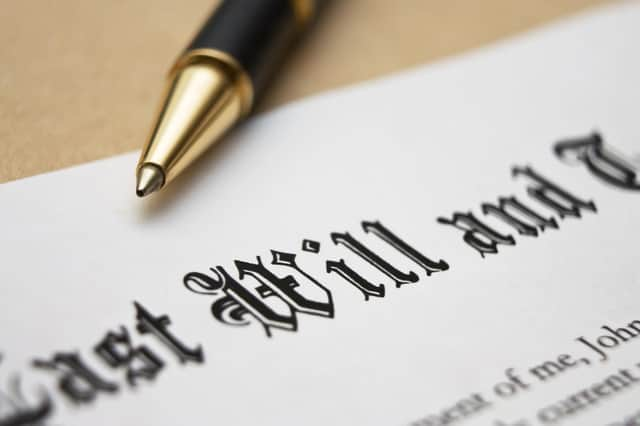University of Portsmouth law lecturer explains how coronavirus pandemic has led to video witnessing of wills


The coronavirus pandemic has encouraged more people to make wills, but the requirements for making a will in England and Wales date from Victorian times. To be valid, a will must be:
- In writing
- Signed by or on behalf of the testator in the presence of two witnesses
- Signed by each of the two witnesses in the presence of the testator
The requirement for three people to be present at a single point in time has been hard to achieve due to coronavirus restrictions.
Beneficiaries (and their spouses) must not be witnesses, which rules out most close relatives, yet self-isolation requires many to restrict their circle of contacts to members of the same household.
In response to these unexpected impediments to making a will, the Ministry of Justice announced in July that video witnessing will be permitted.
The formal legislative rules have been backdated to 31 January 2020, and will last until 31 January 2022, or ‘as long as deemed necessary’.
Whilst these proposals are welcomed, they have not fundamentally altered the witnessing requirements – all they have done is confirm that the “presence” aspect can be met remotely.
There still needs to be a single written document that is signed by, or on behalf of, the testator and both witnesses.
This means there needs to be a two stage process (at least):
- The testator passing the will to the witnesses after the first stage of video witnessing
- The testator arranging a subsequent video call when the witnesses sign
This may be completed quickly if the will can easily be collected by the witnesses (for example, left on a doorstep) but could cause a delay of two or three days if it is to be posted.
There are concerns that this change could lead to increased litigation over the validity of wills, especially if the video link drops or freezes during signing.
What if there is a bad internet connection at the crucial moment of signing? Luckily, Section 9 of the Wills Act 1837 allows the testator to sign or acknowledge their signature in the presence of two witnesses.
Likewise, the witnesses can then sign or acknowledge their signatures in the presence of the testator.
If the video connection were to freeze at an inopportune moment, all that should be required is for the testator to acknowledge ‘this is my signature’ when the connection is restored.
Anyone who wishes to use video witnessing is strongly advised to seek legal advice to ensure the formalities are complied with.
Remember: an invalid will is worse than no will at all.
Faculty provides support during the pandemic
The Faculty of Business and Law has been supporting business partners and local enterprises during the coronavirus pandemic by delivering regular webinars to discuss Covid-19 business-related issues.
We’re bringing together academics and industry specialists to answer your questions on topics such as how to manage teams remotely, and how to reassure customers you can operate efficiently during this period of upheaval.
To find out more about our COVID-19 Business Support and all our Business Services visit www.port.ac.uk/businessservices or email [email protected].